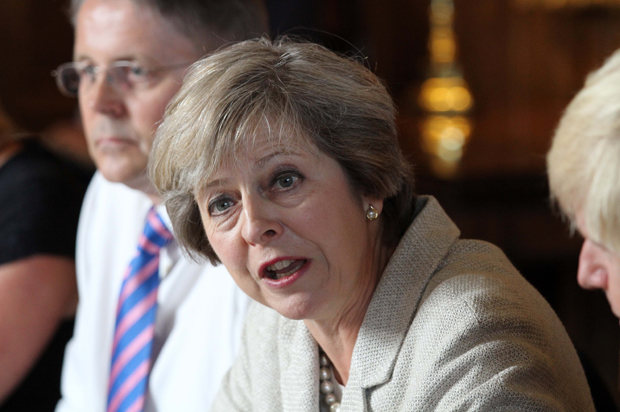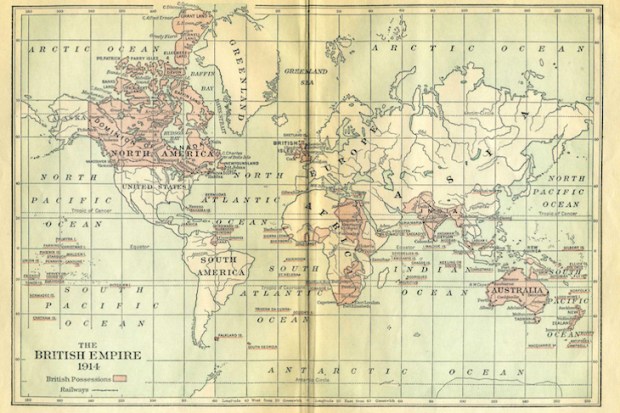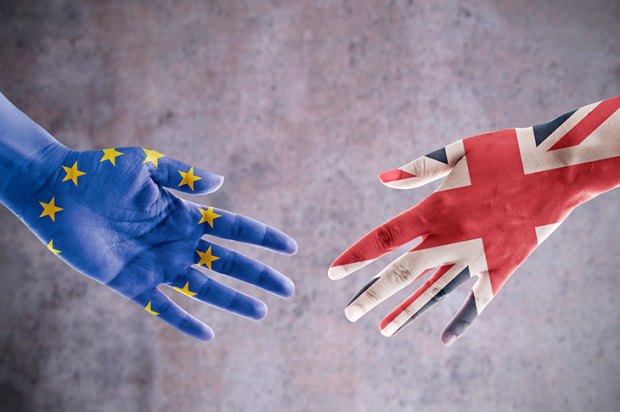Why has ‘trust’ became such a dominant issue in British politics in the early 21st century? Is it the failure to find weapons of mass destruction in Iraq? Or the arrogant ineptitude that led to the financial crisis and the bank bailouts? Or the parliamentary expenses scandal?
Or is it, more than the above, the failure of successive governments to meet their immigration targets? Trust in politics will fall to dangerously low levels if-immigration continues as is following this year’s referendum. This is why the government has acknowledged that some control over EU immigration must be part of the Brexit deal. The extent of these restrictions will be key to our agreement with the rest of the EU.
The relationship between the Brexit vote and immigration is complex. Polls suggest that sovereignty, not immigration, was the biggest motivation behind the Leave vote. But Britain’s inability to determine its own immigration policy became emblematic of our loss of sovereignty. Leave didn’t win solely on account of immigration, but it is hard to see how it could have won without the issue. David Cameron certainly blames his defeat on it, telling EU leaders at his last summit that if they had given him an emergency brake on free movement, Britain would have voted to stay.
Free movement demonstrates the evolution of the EU. Initially, it involved the workers of six western European countries with similar standards of living. But the combination of EU citizenship, introduced in the Maastricht Treaty, and EU enlargement changed all that. People are now moving to countries with a far higher standard of living in search of work. Compounding the effect, Britain implemented the rules less strictly than several other members and chose not to impose transitional controls when eight eastern European countries joined in 2004. This contributed to a public sense — expressed in the referendum — that EU migration was out of control. But Britain must now negotiate a new relationship with a European elite that has an almost theological attachment to free movement.
The starting point should be what the UK would do if left to its own devices. To be sustainable, immigration policy has to command public support. This means the government has to exert control over who comes in and avoid intensifying wage competition at the bottom. But Britain does benefit from high-skilled immigration and needs more of it, not less. When-companies in one area were asked what they were worried about after Brexit, they regarded the continuing ability to hire the best and brightest from across Europe as more vital than single market access.
During the referendum, Vote Leave advocated an Australian-style points system. This emphasised that while Britain would choose who came in, immigration would continue. The policy effectively bridged the divide between Leave voters who were sceptical on immigration and campaign leaders — including Boris Johnson and Michael Gove — who wanted Britain to quit the EU to become more open. But-Theresa May this week ruled out an Aussie-style system. Her criticism was not that it would be too strict, but that too many people would meet the criteria and come in. She might not have brought immigration down to tens of thousands as Home Secretary, but there is little doubt that she would like to reduce it now.
When he was Prime Minister, David Cameron used to complain that only he and Theresa May took the Tories’ ‘tens of thousands’ target seriously. Now she is Prime Minister she won’t find many cabinet allies on the issue. She is certainly more hardline on the subject than her Chancellor, Home-Secretary and Foreign Secretary. Indeed, before the summer break, Amber Rudd and Boris Johnson tried to edge away from ‘tens of thousands’ only for No. 10 to pull them back into line.
May’s determination to reduce immigration may well collide with the EU’s desire to include some element of free movement in any deal with the UK. For now, the government won’t rule out continued single market membership — though this seems to be mostly from a desire to play its cards close to its chest. If Britain stays in the single market and the customs union, the restrictions that could be placed on EU migration would be slight. If Britain moved into the European Economic Area it would be possible to do more because there is no such thing as EEA citizenship. It is possible that entry could be restricted to those with a job offer. But the ability to apply for jobs online means that this might not actually cut numbers by very much; the public could see it as far too-similar the current system.
If the UK opts for a free-trade deal with the EU, there is no logical reason why immigration should be any part of it, Brexit Secretary David Davis argued in the Commons this week. Such deals are signed because of the economic benefits to both sides rather than because of concessions on border controls, he pointed out. But negotiating with the EU will not be an entirely logical affair and senior government figures expect that Brussels will seek preferential treatment for EEA nationals as part of the deal.
There are several ideas floating around Whitehall as to how this might work. One is a quota system for EU migrants that would let in a certain number each year. I understand that a non-discriminatory immigration system — one that would treat people from EU and non-EU countries equally — is only likely in the event of a ‘hard Brexit’ with no deal on future relations between the UK and the EU.
Few issues in politics are as difficult to discuss as immigration. But the aim of Britain’s new policy should be to attract the best and the brightest from around the world. If voters believed that the government had control over immigration and could choose who to let in — as it should after Brexit — they would be more relaxed about the numbers.
The post After Brexit, who should Britain let in? appeared first on The Spectator.
Got something to add? Join the discussion and comment below.
Get 10 issues for just $10
Subscribe to The Spectator Australia today for the next 10 magazine issues, plus full online access, for just $10.
You might disagree with half of it, but you’ll enjoy reading all of it. Try your first month for free, then just $2 a week for the remainder of your first year.















Comments
Don't miss out
Join the conversation with other Spectator Australia readers. Subscribe to leave a comment.
SUBSCRIBEAlready a subscriber? Log in